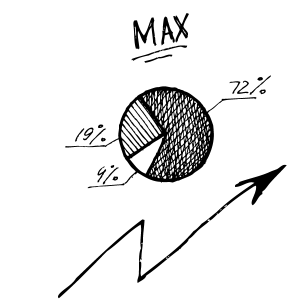The pursuit of an LL.M. degree has long been regarded as a gateway to professional advancement in the legal field and beyond. Yet, in the wake of the COVID-19 pandemic, there has been a noticeable shift. The once-vibrant demand for LL.M. programs has encountered a noticeable decline as prospective applicants grapple with uncertainty surrounding the job market, driven by the economic fluctuations triggered by the pandemic and other global economic shocks.
Christina Rice has observed this shift from her position as Assistant Dean of Graduate, International and Online Programs at Boston University Law School. “The demand for LL.M. programs in the U.S. has decreased in recent years, with a significant drop during the pandemic years,” she says.
While there are indications of a recovery in the number of LL.M. applicants to the U.S. post-pandemic -- with LSAC (Law School Admission Council) reporting a 2.6 percent increase in number of LL.M. applicants this year compared to last -- Rice cautions that a return to pre-pandemic levels may not be guaranteed.
Global economic conditions weigh on demand
“Worldwide economic conditions are certainly contributing to this decrease, as many local currencies have decreased in value compared to the U.S. dollar, making the cost of study in the country increasingly expensive at a time when many families are still recovering from economic losses caused by the pandemic,” she adds.
Moreover, specific shifts in the demographics of LL.M. students have been observed by Rice. The demand from China has shown signs of decline even before the COVID-19 outbreak, owing to the improved quality and quantity of educational opportunities in the country. In contrast, an increase in LL.M. applications has been witnessed from students in India, Turkey, Pakistan, Iran, Brazil, and various African countries, notably Nigeria and Ghana.
“However, many students from these countries face significant economic barriers to study in the U.S. and need substantial funding to be able to attend -- so although application volume has increased, those increases do not always result in increased enrollment,” Rice adds.
Online learning rises to the fore
Moreover, changes in the mode of study preference have surfaced in response to the COVID-19 pandemic, leading to an upsurge in demand for remote LL.M. programs. Anya Grossmann, Director of Global Outreach and Professional Engagement at Berkeley Law in California, acknowledges this shift: “Since we were all forced to work and study online, there is an increasing sense that high-quality education can be delivered in a remote format. That structure can work really well for students who can’t leave their work or personal commitments for a nine-month period,” she says.
There will always be a demand for the traditional nine-month LL.M. degree, but Grossman expects more and more schools will respond to the demand for remote education and non-traditional structures.
Moreover, Grossman observes a heightened interest in non-legal skills among LL.M. applicants. “An interesting area of growth is less about specific areas of law, and more about professional skills such as leadership,” Grossman says. Addressing this evolving preference, Berkeley Law has recently introduced a Post-Graduate Executive Leadership Certificate as part of the LL.M. executive track.
Not all LL.M. programs are in decline
While the demand for in-person LL.M. programs has declined in many schools, some institutions have managed to uphold demand, even throughout the COVID pandemic. Sandra Friedrich, the Assistant Dean for International Graduate Law Programs at Miami Law, affirms this stability: “Application numbers have remained fairly stable.”
However, she points out that prospective LL.M. students are encountering specific challenges. “Those include signs of a global recession, rising inflation and currency devaluations versus the U.S. dollar in certain countries, delays in visa processing and an increase in visa denials in some countries,” Friedrich says.
Furthermore, due to visa requirements and the New York Bar regulations, which mandate primarily in-person classroom attendance, the flexibility that was offered during the COVID pandemic in the form of online, hybrid and summer-study options may no longer be available for international students.
Reasons to be optimistic for the future
While factors such as inflation and heightened unemployment have undoubtedly impacted the demand for LL.M. programs, Cecilia Caldeira, Assistant Dean for International and Non-J.D. Programs at Fordham Law School in New York, remains optimistic about the future. “With unprecedented growth and advancement in the areas of technology and compliance we have seen increased interest for programs in these spaces,” she says.
Caldeira firmly believes that the demand for LL.M. programs will persist due to the practical nature of this degree, allowing lawyers to expand their academic horizon. “It is likely with the continued infusion of AI and technology within the legal space, the need for individuals to stay current on trends and industry reformulations is key to their career growth.”










